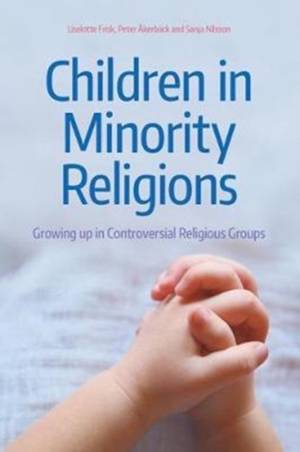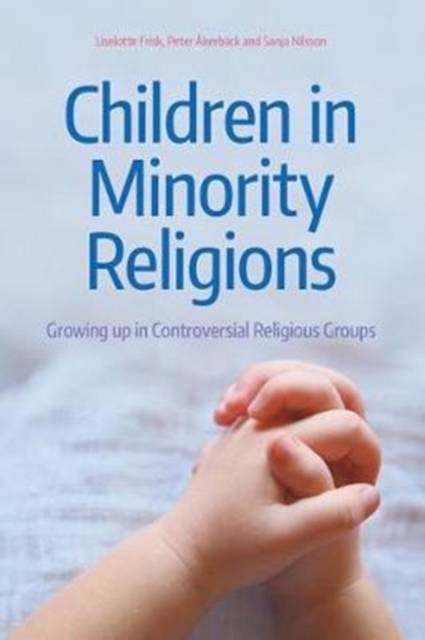
- Afhalen na 1 uur in een winkel met voorraad
- Gratis thuislevering in België
- Ruim aanbod met 7 miljoen producten
- Afhalen na 1 uur in een winkel met voorraad
- Gratis thuislevering in België
- Ruim aanbod met 7 miljoen producten
Children in Minority Religions
Growing up in Controversial Religious Groups
Liselotte Frisk, Sanja Nilsson, Peter ÅkerbäckOmschrijving
Minority religions that differ from the mainstream are often perceived as controversial and as a threat to the individual and to society. During the 1970s and '80s, there were intense discussions about whether conversion to these groups was voluntary or an effect of brainwashing or manipulation. In recent years, however, the situation of children in these groups has taken over the public debate. Many believe that childhoods in cults involve physical and psychological abuse, and that severe punishment, starvation, sexual abuse, manipulation, forced obedience, lack of medical care and demonization of the outside world is part of everyday life.
This book presents four years of research. Its purpose is to highlight children's upbringing in certain minority religions with a high degree of sectarian criteria in a sociological sense, including: high tension with the society/world outside; unique legitimacy; high level of commitment; and exclusive membership. The study examines mainly, but not exclusively, seven minority religious communities: the Hare Krishna movement (ISKCON), The Family International (formerly The Children of God), the Church of Scientology, the Family Federation/Unification Church, Knutby Filadelfia (a Pentecostal group), the Plymouth Brethren/Exclusive Brethren, and Jehovah's Witnesses.
The fieldwork was conducted in Sweden, but the situation of the children and the findings are relevant to other countries. Most of the minority groups discussed have an international character with a presence in many countries, with only minor differences depending on local circumstances. The study is based on literature from the religions and on observations of children and parents in religious rituals and daily life. However, the most important material for the book consists of seventy-five in-depth interviews with adults who grew up in minority religions and who are still involved, who grew up in minority religions but are not now engaged, and who raised children in the minority religions; as well as eighteen in-depth interviews with children between the ages of 8 and 17 living in these groups.
Specificaties
Betrokkenen
- Auteur(s):
- Uitgeverij:
Inhoud
- Aantal bladzijden:
- 300
- Taal:
- Engels
Eigenschappen
- Productcode (EAN):
- 9781781794203
- Verschijningsdatum:
- 24/01/2018
- Uitvoering:
- Hardcover
- Formaat:
- Genaaid
- Afmetingen:
- 160 mm x 236 mm
- Gewicht:
- 816 g

Alleen bij Standaard Boekhandel
Beoordelingen
We publiceren alleen reviews die voldoen aan de voorwaarden voor reviews. Bekijk onze voorwaarden voor reviews.












